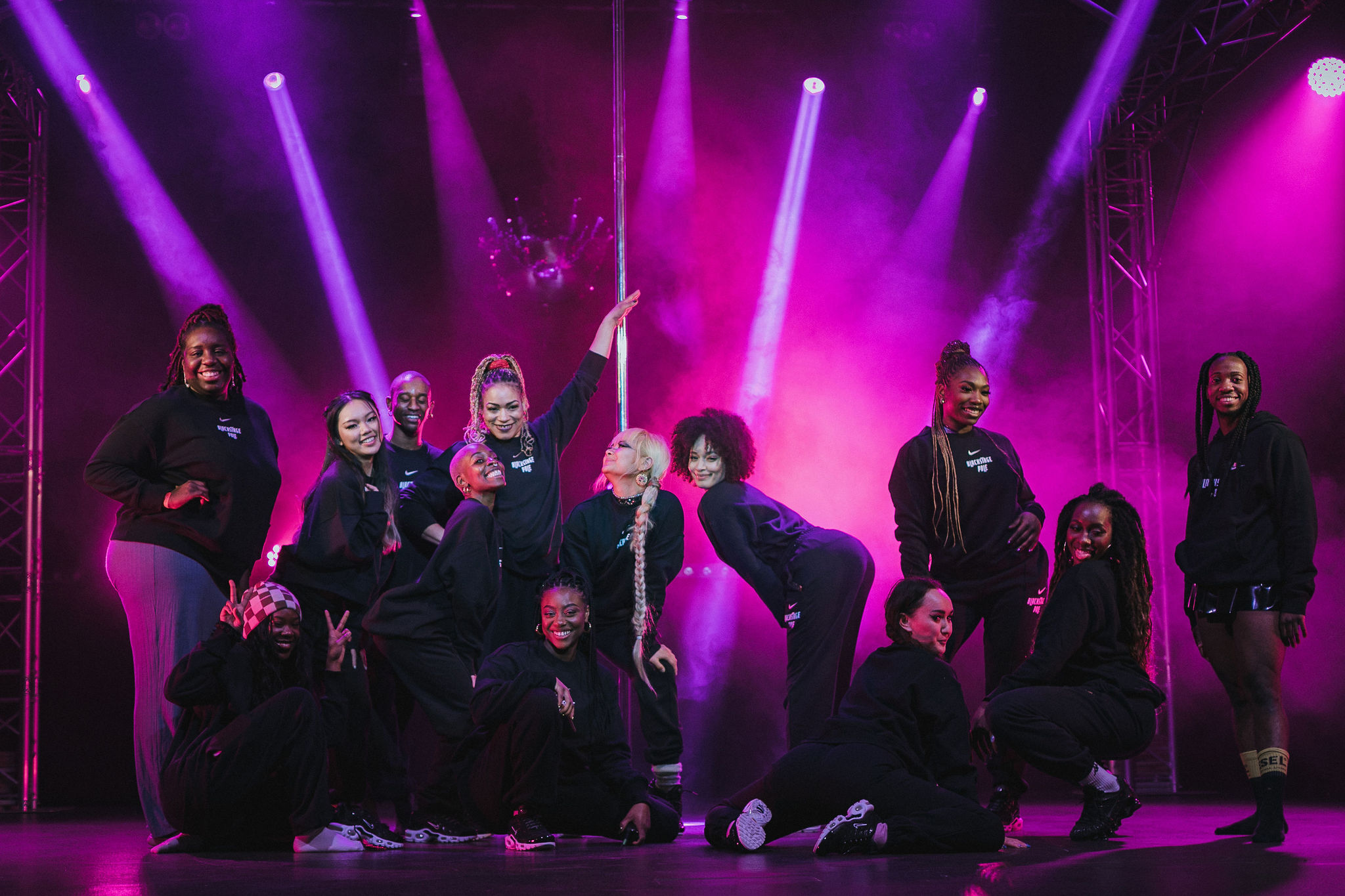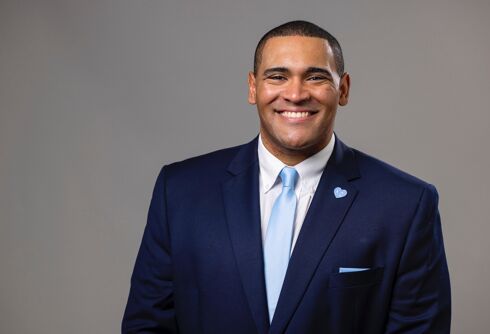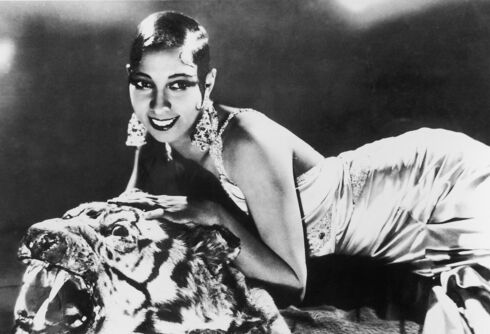Blackstage Pole’s Instagram page is a collection of reels teasing the upcoming pole dance performances that will take place at its annual show in London. Some performers in the reels are barefoot; others are in platform heels. Some are upside down and some are horizontal. But all of them seem to exude an empowered confidence that is difficult to put into words.
On April 6, 13 professionals from around the world will take the stage on April 6, symbolizing the diversity that the group’s founder, Leila Davis, wishes could be present across the entire pole industry.
Related:
LGBTQ+ megastars have long dominated gospel music. Their flair has shaped the “soul-stirring” genre.
“Gay men can allow the music to take them where heterosexual men cannot go.”
“There is a lack of representation of BPOC folks and a hugely negative white, non-sex worker allied pole narrative, which also erases trans, plus-sized and non-binary polers,” Davis, a queer professional dancer who has been in the industry for over a decade and has performed with the likes of Snoop Dogg, Bruna Boy, and Shygirl, told LGBTQ Nation.
Never Miss a Beat
Subscribe to our newsletter to stay ahead of the latest LGBTQ+ political news and insights.
Some documentation indicates that pole dance evolved from a 2000-year-old Chinese sport, while elsewhere there are references to an African fertility dance. Regardless, the dance style made its way into U.S. traveling circuses before becoming synonymous with sex workers and showgirls in the 1950s.
Today, pole dance has slid into the mainstream. It’s now a common class found in dance studios, and there are hundreds of instructional videos on YouTube for at-home learners. Jennifer Lopez’s 2019 movie Hustlers helped highlight the strength and skill that it takes to be a competent pole dancer and triggered a boom in interest. There was even a push, albeit unsuccessful, for pole to be included in the 2024 Olympic games.
But as it gains more popularity, some in the community worry its origins are becoming forgotten and “whitewashed” and that it’s failing to stay true to its inclusive nature.
“Pole dancing grew from the labor of primarily POC strippers, and yet the image of pole dance, often rebranded as pole fitness, is whitewashed and removed from its sex worker roots,” a spokesperson for Club Chrome, an LGBTQIA+ pole dance collective in Australia, said in a statement. “The same whitewashing and sex worker erasure is also seen in queer spaces.”
Destiny, a 23-year-old poll instructor, performer, and stripper from Manchester, said she initially thought the space was inclusive after joining a local pole dance class specifically for people of color.
“I saw people who looked like me and I was accepted. Then getting deeper into the industry [I saw] that it wasn’t actually that inclusive,” she said, explaining that many studios have a “female-only girl power type vibe,” which can exclude anyone who isn’t a “straight-sized, cis heterosexual white woman.”
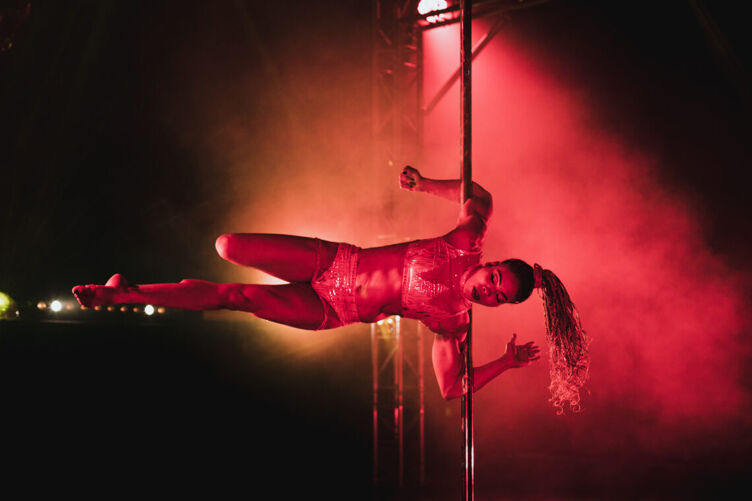
That, in turn, means many competition lineups lack representation, having around one person of color or LGBTQ+ person, Destiny said. When that’s Destiny, it makes her question whether she’s there because she’s wanted or to fill a quota.
For Colleen Jolly, who manages the International Pole Convention and is the founder of the International Pole Industry Association, businesses, events, competitions, and other high-profile representations of pole dance are often lagging indicators of what’s actually happening in the industry.
But the same goes with studios, Destiny said. “I’ve worked at studios and continue to work at studios where I am one of or the only person of color on the team and haven’t experienced the best of times there,” she shared.
Many pole businesses are often focused first on survival, Jolly said. “And if that business owner doesn’t have lived experience as a transgender person, for instance, they might not immediately see how they could be supportive of transgender polers.”
She added that it might then be up to individuals to suggest changes. “I know that isn’t always easy, so if businesses and high-profile polers can create a space where speaking up is encouraged, that is a great first step toward greater inclusion.”
Enter Blackstage Pole. Davis founded the UK nonprofit events company in 2020 to center and enhance the creativity of pole dancers of color as well as those who are queer, trans, disabled, low-income, or sex workers.
“I wanted a space for the community I love and see to be loved and seen by all as it should be. I want the pole industry to be decolonized,” said Davis (who goes by the stage name Cutie Whippingham) on her website.
She later added, “It’s saying everyone should be allowed to pole, there should be no rules, and there’s no reason it should be gendered or make people feel uncomfortable.”
For four years, Davis has been curating just that idea, hosting events that showcase the talent of the professionals Blackstage Pole works with. This year marks the first time the showcase is being supported by Arts Council England, formalizing its recognition as an art form.
Out of over 200 applicants, 13, including Destiny, have been selected to debut at the event. A trans-Filipina performer, a Snoop Dogg backup dancer who uses pole as resource for survivors of sexual abuse, and an American queer sex worker have made the cut. The continuous aim, said Davis, is to highlight the true diversity of this art form.
“It’s just a great place to showcase that we are here and we are in this community and we’re not going anywhere,” said Destiny. She hopes other showcase organizers see the event and are confronted with the talent in the industry that they continuously choose to ignore.
It’s already having an impact, said Davis, explaining that for those creating harmful and exclusive spaces, Blackstage Pole’s existence signals that “they can’t get away with this anymore.”
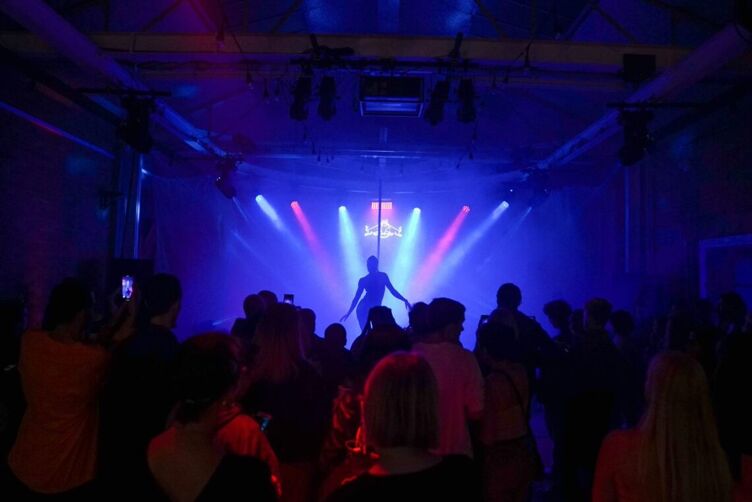
Others in the industry are also trying to bring back pole’s intrinsic diverse nature.
Destiny participated in a show called Black Magic in October that had a lineup of all-Black performers; the UK’s Filthy Friday creates spaces for sex workers, queer people, and people of color; and the Pole Dance Stripper Movement competition is run by sex workers and aims to amplify their voices.
In Australia, Club Chrome works to re-center diverse bodies as objects of sexual desire in a way that is denied by the mainstream sex industry and demands that pole and queer communities reconsider pole dance as a legitimate art form and expression of diverse sexuality.
And in the US, PoleCon has a queer showcase and hosts several panel discussions for queer polers, sex workers, plus-sized polers, and BIPOC polers. “Also, as of this year, we have added a contractual requirement for workshop leaders to use gender-neutral terms when addressing a group,” Jolly shared.
Destiny said the industry is getting better overall, but more can always be done to honor the legacy of pole’s origins and make it a more inclusive community today.
“I would like to see people in the industry not just saying it because it’s cool or trendy, but actually working to make sure that their studios aren’t being racist or whorephobic, they’re not excluding people based on sexuality or race,” Destiny said. “Either be an ally or don’t.”
Don't forget to share:



